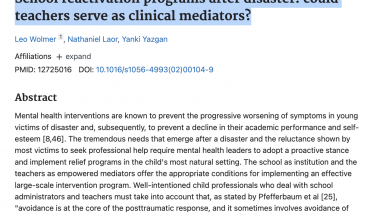Abstract
Objective: In April 2012, the Turkish national education system was modified, and the compulsory school age of entry (first grade) was redefined as a minimum of 60 months and a maximum of 66 months
(replacing the former minimum criterion of 72 months). In this study, we hypothesized that students starting
school before 72 months (the previous age standard for the first grade) may experience (1) a greater number
of symptoms of attention deficit hyperactivity disorder (ADHD) and (2) lower functioning in social, behavioral, and academic domains. Method: We performed a cross-sectional community-based study in the first
and second grades of all primary schools (4356 students) located in the Kadikoy county of Istanbul, Turkey.
Teachers completed Swanson, Nolan, and Pelham version IV and Conners’ Teacher’s report forms for
symptoms of ADHD, the Perceived Competence Scale for functioning, and a sociodemographic questionnaire.
Results: Among first graders, the group that began primary school before the age of 72 months had a higher
ADHD prevalence than both of the groups that began primary school between the ages of 72 to 77 months
and 78 to 83 months (p < .001 for both groups). ADHD symptoms diminished and academic, social, and
behavioral functioning improved with age for the first and second grade students. Conclusion: The probability of displaying ADHD symptoms (and caseness) is greater among the “earlier” beginners, whereas the
“conventional” classmates exhibited better academic, social, and behavioral functioning.
Index terms: attention-deficit/hyperactivity disorder, age, children, prevelance, primary school

